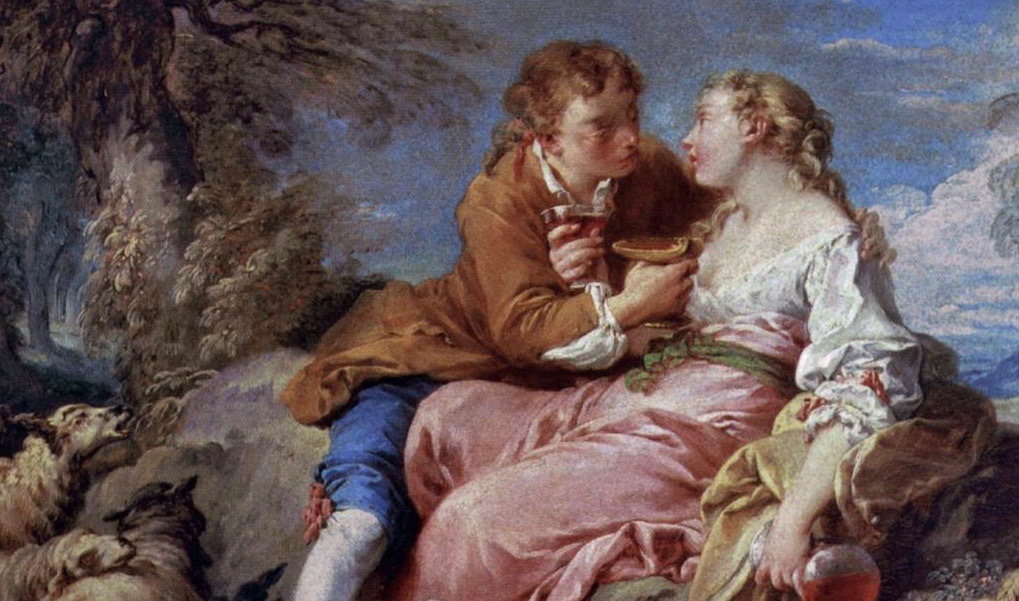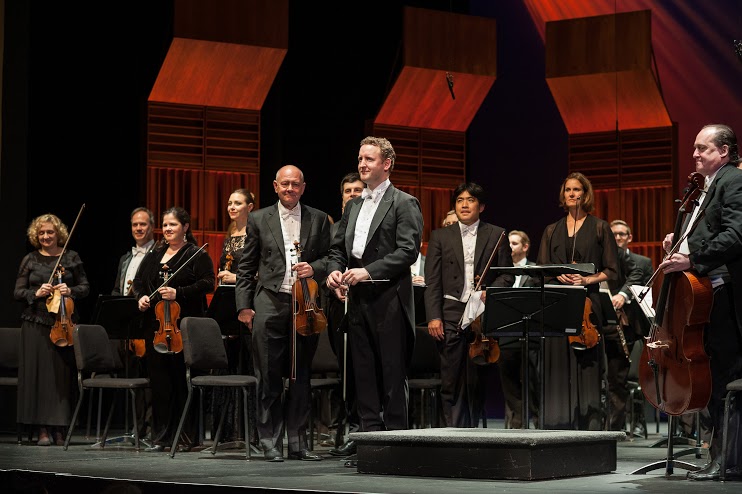Mainly Mozart presents its first opera, “Bastien and Bastienne”
Mainly Mozart’s very first opera performance, Mozart’s Bastien und Bastienne, a one-act Singspiel written in 1768 when the composer was only twelve.
Mainly Mozart Festival Orchestra
Michael Francis, conductor
Umi Garrett, piano
Christine Taylor Price, soprano
Yujoong Kim, tenor
Daniel Miroslaw, bass
Cynthia Stokes, opera director
Program
Mozart: Gallimathias musicum in D Major, K. 32
Beethoven: Piano Concerto No. 2 in B-flat Major, Op. 19
Mozart: Bastien und Bastienne, K. 50/46b
San Diego: Review by David Gregson, Sunday, June 5
As a genre, the German Singspiel invariably presents a problem for producers in English- speaking countries. Should a work such as Mozart’s Die Zauberflöte (The Magic Flute) be performed entirely in the language of the audience or entirely in German? If entirely in German, the stretches of spoken dialogue (one of the Singspiel’s defining characteristics) may not be understood. Idiomatic spoken German also can pose problems for the singers, some of whom may be more skilled at singing the language than speaking it.
One could, of course, simply perform the whole damn thing in English. Unfortunately, this is not a fashionable or very satisfactory solution because singers who already know the music do not want to have to relearn it in another language. And singing in English, depending on the venue, is often hard to understand without the aid of supertitle translations. If you’re going to use those, why bother to sing in English at all?
The compromise, which I happen to dislike because it makes no dramatic sense whatsoever, is to sing in German and speak in English. Famous progressive stage director Peter Sellars so disliked this compromise that at Glyndebourne one year, he jettisoned the spoken text altogether, much to the confusion and annoyance of many opera goers. In any case, when a semi-staged version of Mozart’s early Singspiel, Bastien and Bastienne, was prepared for the opening performances of our local Mainly Mozart Festival, music director Michael Francis and stage director Cynthia Stokes, settled on the bilingual approach — with projected titles translating the sung portions in German, although not with the spoken parts in English.
Bastien and Bastienne, a parody of a pastoral romance written when little Amadeus was only 12, is a jolly short 45 minutes long. A deft performance can make the piece a charmer. (I favor a 1990 recording with soprano Edita Gruberová as the shepherdess Bastienne; tenor Vinson Cole as her amorous pursuer, Bastien; and basso László Polgár as the soothsayer, Colas. The Franz Liszt Chamber Orchestra is conducted by Raymond Leppard.) The story is nothing at all — the comic pre-marital antics of a shepherd and shepherdess, with the absurd complications mediated by a rural magician. All ends quickly and happily.
Mainly Mozart’s singers were a talented young trio from Juilliard. Performing in costume just downstage of the wonderful MM Festival orchestra conducted by Maestro Francis, the three did their best to beguile the audience, mostly by mugging shamelessly under the stage direction of Cynthia Stokes. These were Christine Taylor Price (Bastienne), a fine soprano with a light lyric sound with a fast beat, but well suited to many Mozart roles; Yujoong Kim (Bastien) a Korean tenor with a pleasing warm timbre; and Daniel Miroslaw, a resonant Polish basso with a fine future ahead of him. The latter’s spoken dialogue, however, was virtually impossible to decipher, partly due to the acoustic, his accent and dynamic vocal inflection. It interesting to a like a singer a great deal even though you cannot understand a word he’s saying!
No doubt the section of the Balboa Theatre auditorium where one was seated made a big difference in how this performance was perceived. I was delighted with my fine seat on the aisle in row N, but I could not make out most of the spoken dialogue consistently. Oddly, I could make out the German words in the sung sections. So for me, the bilingual solution was largely a flop — not even taking into consideration the silliness of the continual mugging for which I could not summon up a single ounce of the willing suspension of disbelief.
Aside from the acting which evoked for me vivid memories of well-meaning educational opera outreach troupes that visited my high school in days of yore (and I recall an awful performance of an abbreviated Die Entführung aus dem Serail which made us kids want to hate Mozart forever), there was nothing that more rehearsal time could not have cured. The conductor is fine, the orchestra is excellent, the singers gifted — but this little piece requires some real style and polish to truly bring it off. It’s not a masterpiece, after all. It’s a work by a young genius who would soon write many masterpieces and utterly matchless operas. But this year’s Mainly Mozart Festival is focusing on Mozart the Prodigy — an interesting marketing idea, although for me it’s more like Mozart the Circus Performer. Marvel at what this kid can do! There’s a bit of Samuel Johnson’s dog walking on its hind legs here. A 12-year-old can write an opera, so “you are surprised to find it done at all.”
All objections aside, Bastien and Bastienne is full of music that foreshadows what is to come in a great career. It’s tightly constructed, full of good natured humor, and it combines elements of the German Lied and other musical styles, and it builds at the end from a duet into a trio. I can imagine Amadeus being very pleased with himself. But credit must also go to the book: a German libretto by Friedrich Wilhelm Weiskern, Johann Heinrich Friedrich Müller, and Johann Andreas Schachtner.
The best part of last night’s program was not the opera but the marvelous performance of Beethoven’s Piano Concerto, No. 2 in B-flat Major, Op. 19, with 15-year-old Umi Garrett at the keyboard. This young woman is well on her way to being a mature artist who does not need to draw attention to her age to impress. Everything about her Beethoven playing was commendable. Where her youthful indiscretion revealed itself was in her egregiously showy encore, the “Concert Paraphrase on Mozart’s ‘Turkish March'” in A minor, by the ever vulgar Arcadi Volodos. It wowed everyone — so I suppose, why not?
In the pre-concert program, conductor Francis discussed the program’s opening work, Mozart’s Gallimathias musicum in D Major, K. 32. Before he conducted it less than an hour later, he probably should have told the audience they were free to laugh. Mozart was apparently in his P.D.Q. Bach mood when he wrote this playful and highly inventive 17-movement work. I loved the goofy harpsichord solo and the wonderful fugue at the end.
Some interesting concerts are slated to follow. See Mainly Mozart Festival
Please feel free to leave comments below. (Moderated forum).





